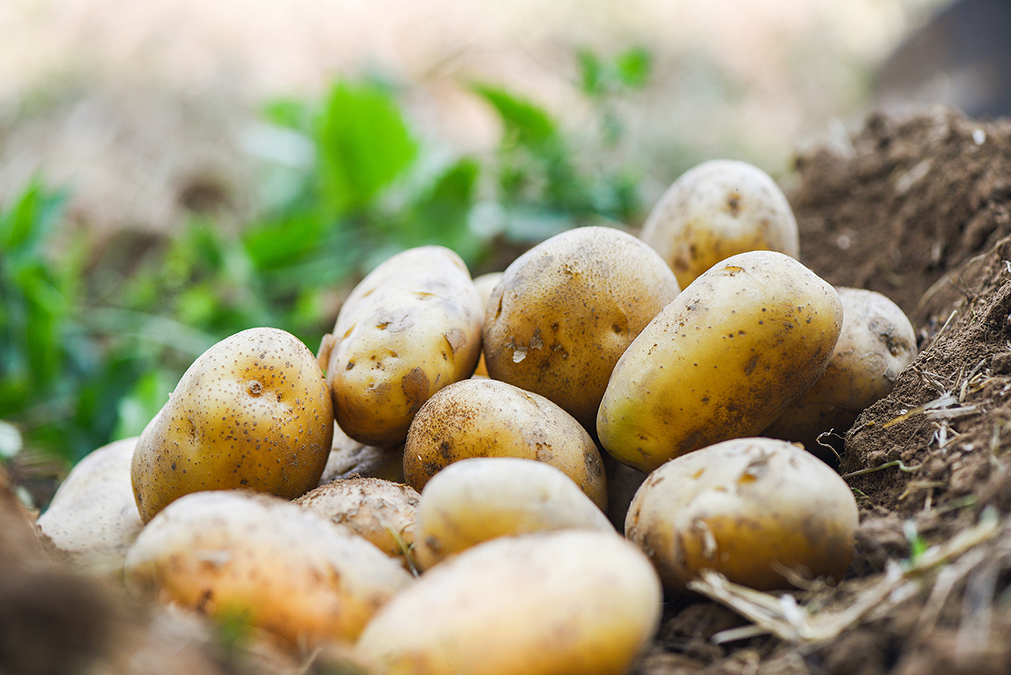 Most advice about avoiding high blood pressure involves eating more fruits and vegetables, but now there’s some confusion about one vegetable that a lot of people eat.
Most advice about avoiding high blood pressure involves eating more fruits and vegetables, but now there’s some confusion about one vegetable that a lot of people eat.
A new study from Brigham and Women’s Hospital and Harvard Medical School points the finger at this vegetable and accuses it of potentially doing more harm than good.
And, to muddy the waters even more, they also found that one of the least healthy ways of preparing this vegetable DID NOT seem to raise blood pressure.
The authors already knew that people who took potassium supplements had lower blood pressure than their peers. They also knew that high-glycemic carbohydrates (like potatoes) can increase blood pressure.
As potatoes are full of potassium (which can lower blood pressure) and high-glycemic carbohydrates (which can raise blood pressure), they were curious about which one would win this tug of war.
So they looked back over three previous studies that tracked 187,453 people. They knew their potato intakes, and which of them had hypertension.
They found that people who ate less than one portion of potatoes per month had the lowest risk, whereas those who ate four or more portions per week had the highest risk.
It didn’t matter if they smoked or not, were obese or not, or exercised or not. The results were still the same.
And what they ate and drank didn’t seem to make any difference, either. They could have been drinkers or abstainers, vegetarians or meat eaters. In all cases, more potatoes meant higher blood pressure.
But here’s a couple of odd things…
1. Four or more weekly servings of baked, boiled, or mashed potatoes increased the blood pressure risk for women, but not for men.
2. French fries increased everyone’s risk, but potato chips didn’t, which seems weird as they’re virtually the same thing. Both are deep-fried and both are salty.
It would be nice to think that we can all eat potato chips every day without suffering any health problems, but let’s hold back until the scientists can get to the bottom of what’s going on with this strange result.
There’s obviously more work to be done to figure out exactly what’s going on, because something clearly is.
Until that happens, try and stay at three or fewer portions of potatoes per week (including potato chips) just to be on the safe side.

 Overcoming IBD
Overcoming IBD Multiple Sclerosis
Multiple Sclerosis Banishing Bronchitis
Banishing Bronchitis Gum Disease Gone
Gum Disease Gone Overcoming Onychomycosis
Overcoming Onychomycosis Neuropathy No More
Neuropathy No More The Prostate Protocol
The Prostate Protocol Brain Booster
Brain Booster
 Ironbound
Ironbound
 Solution for Shingles
Solution for Shingles
 The Bone Density Solution
The Bone Density Solution
 The Ultimate Healing Protocol
The Ultimate Healing Protocol
 The Parkinson's Protocol
The Parkinson's Protocol
 The Chronic Kidney Disease Solution
The Chronic Kidney Disease Solution
 Overthrowing Anxiety
Overthrowing Anxiety The Fatty Liver Solution
The Fatty Liver Solution The Hypothyroidism Solution
The Hypothyroidism Solution
 The End of Gout
The End of Gout The Blood Pressure Program
The Blood Pressure Program
 The Oxigized Cholesterol Strategy
The Oxigized Cholesterol Strategy
 Stop Snoring And Sleep Apnea Program
Stop Snoring And Sleep Apnea Program
 The Arthritis Strategy
The Arthritis Strategy The Vertigo & Dizziness Program
The Vertigo & Dizziness Program The 3-Step Diabetes Strategy
The 3-Step Diabetes Strategy Hemorrhoids Healing Protocol
Hemorrhoids Healing Protocol The Erectile Dysfunction Master
The Erectile Dysfunction Master Weight Loss Breeze
Weight Loss Breeze The IBS Program
The IBS Program The Insomnia Program
The Insomnia Program The Migraine and Headache Program
The Migraine and Headache Program The Neck Pain Solution
The Neck Pain Solution The Menopause Solution
The Menopause Solution The Ejaculation Master
The Ejaculation Master The TMJ Solution
The TMJ Solution The Acid Reflux Solution
The Acid Reflux Solution The Fibromyalgia Solution
The Fibromyalgia Solution The Psoriasis Strategy
The Psoriasis Strategy